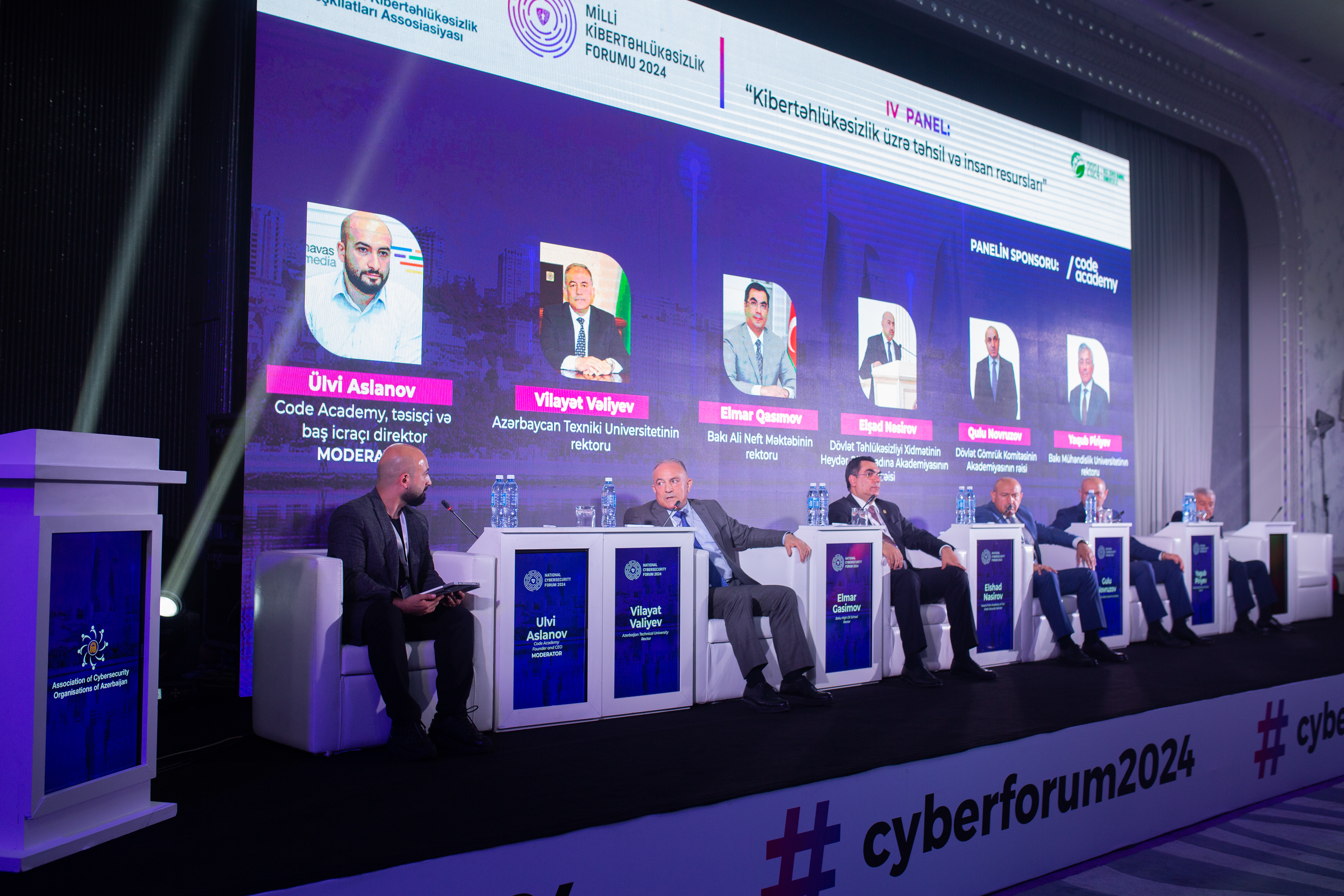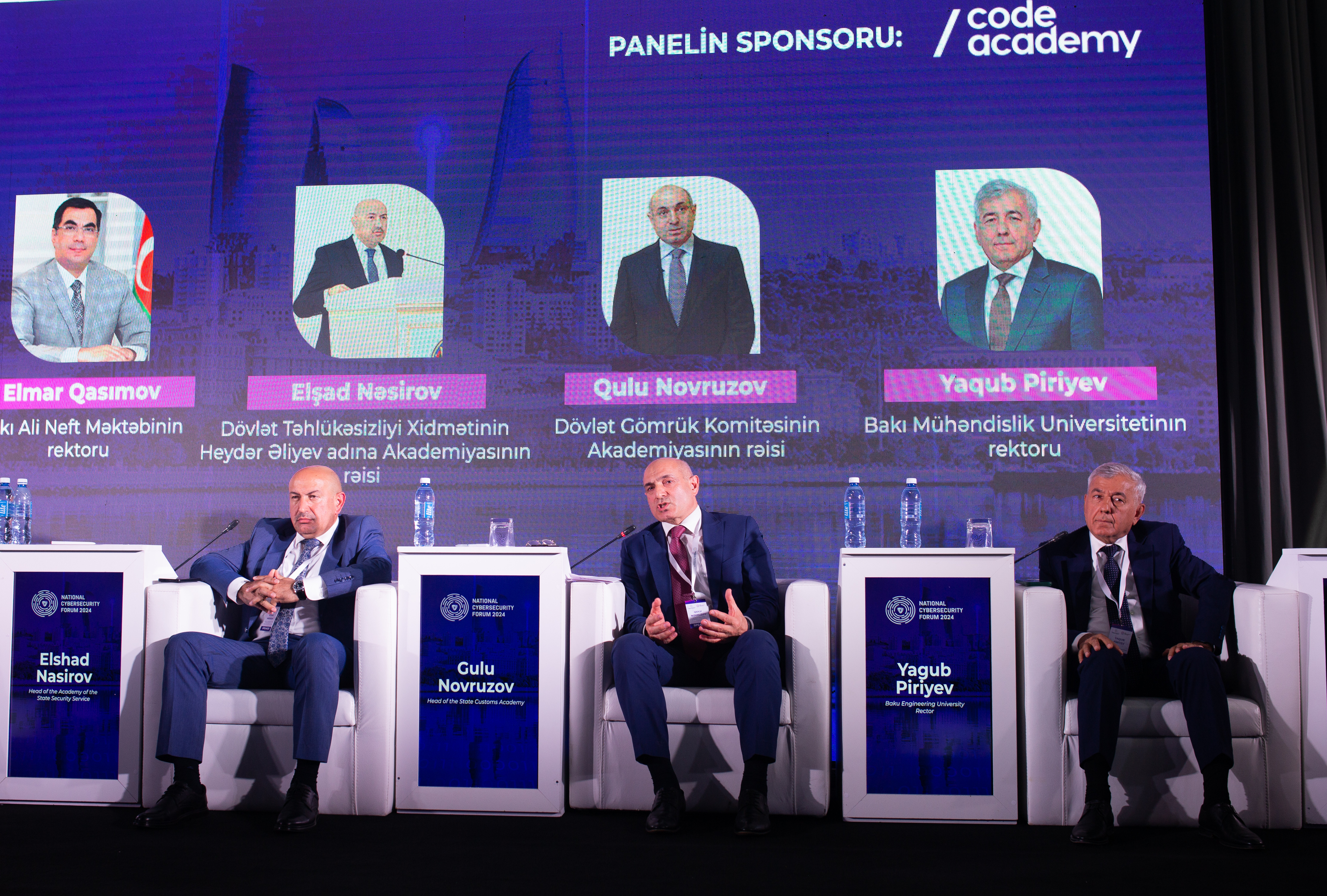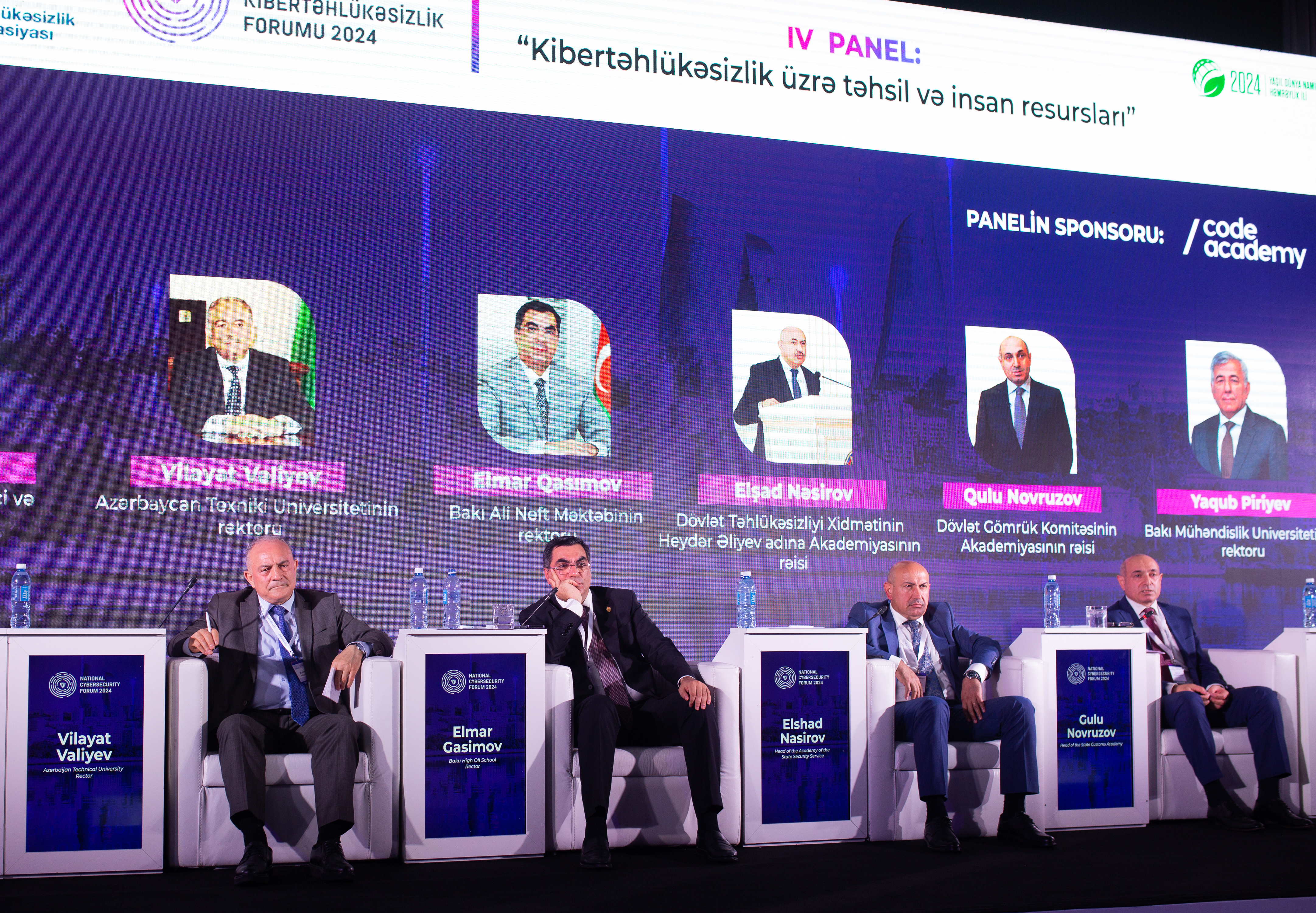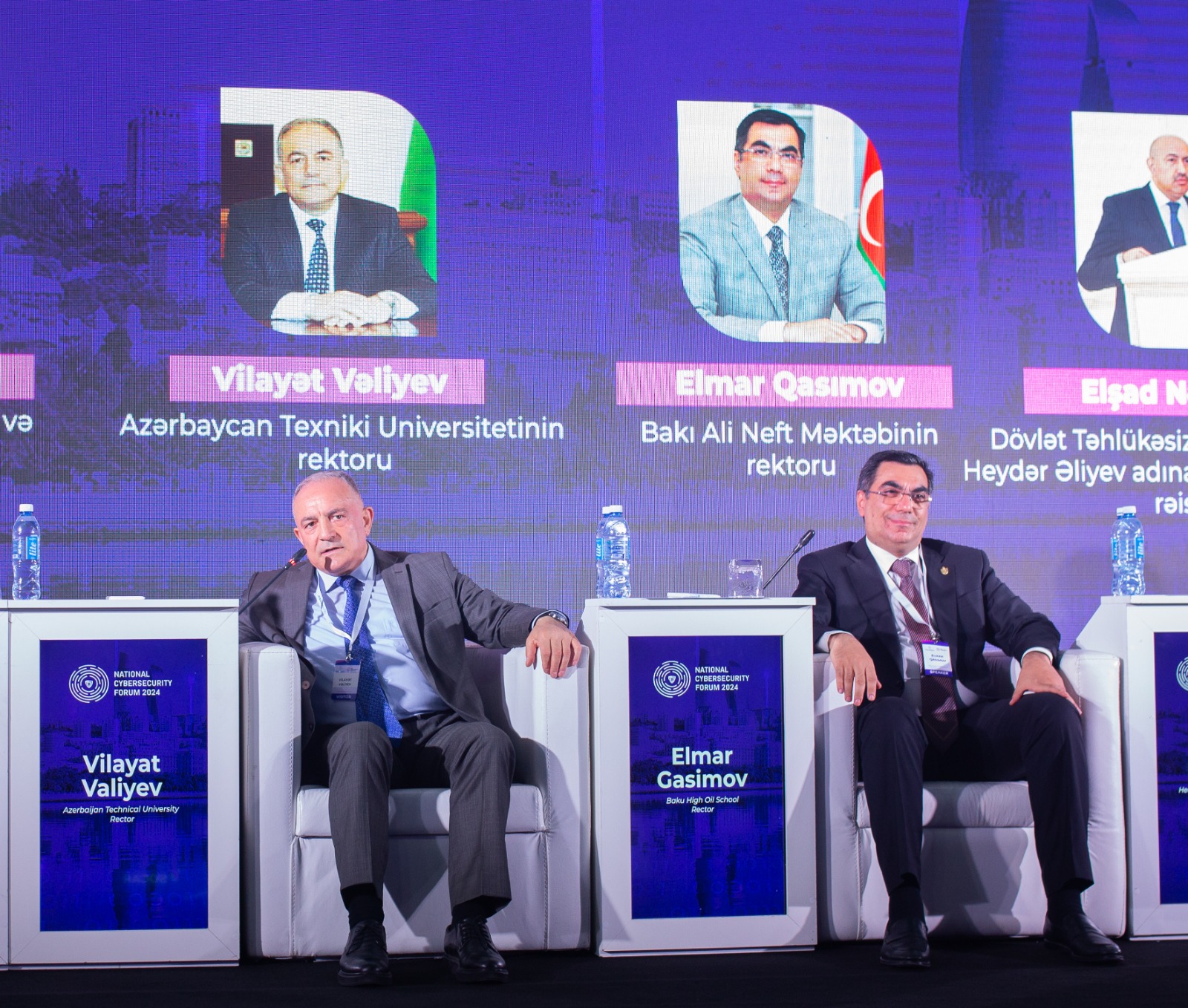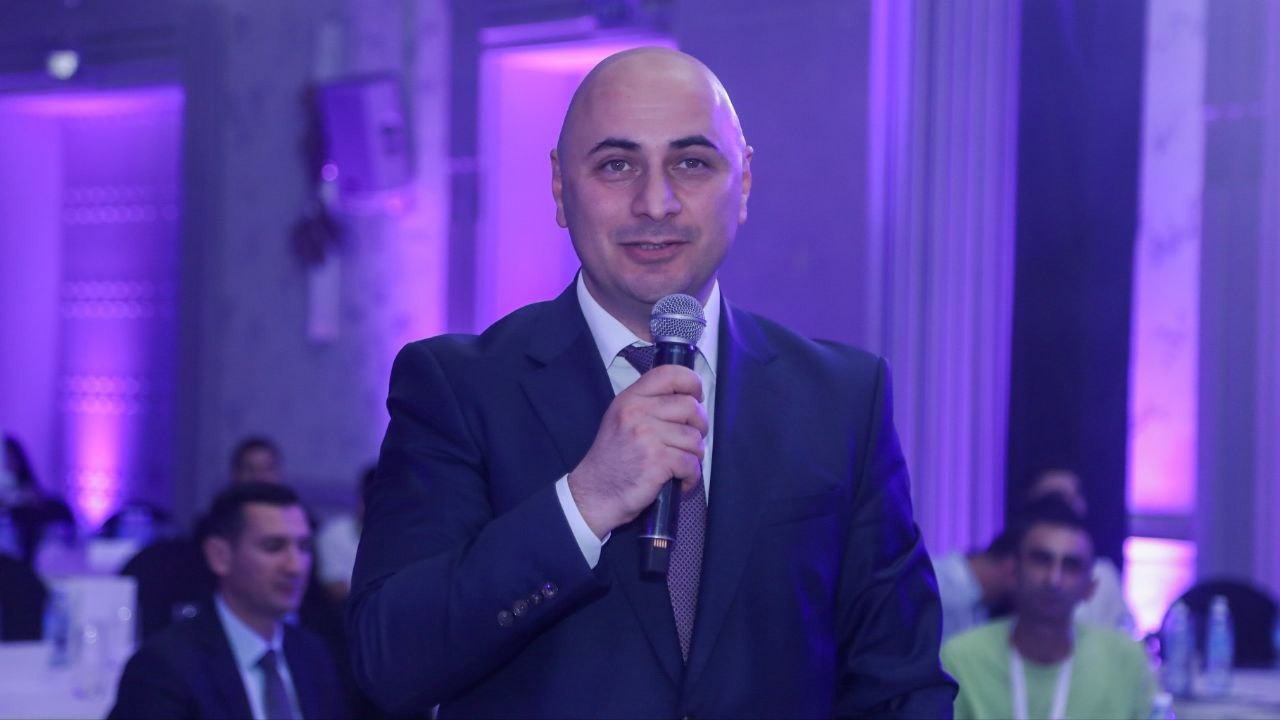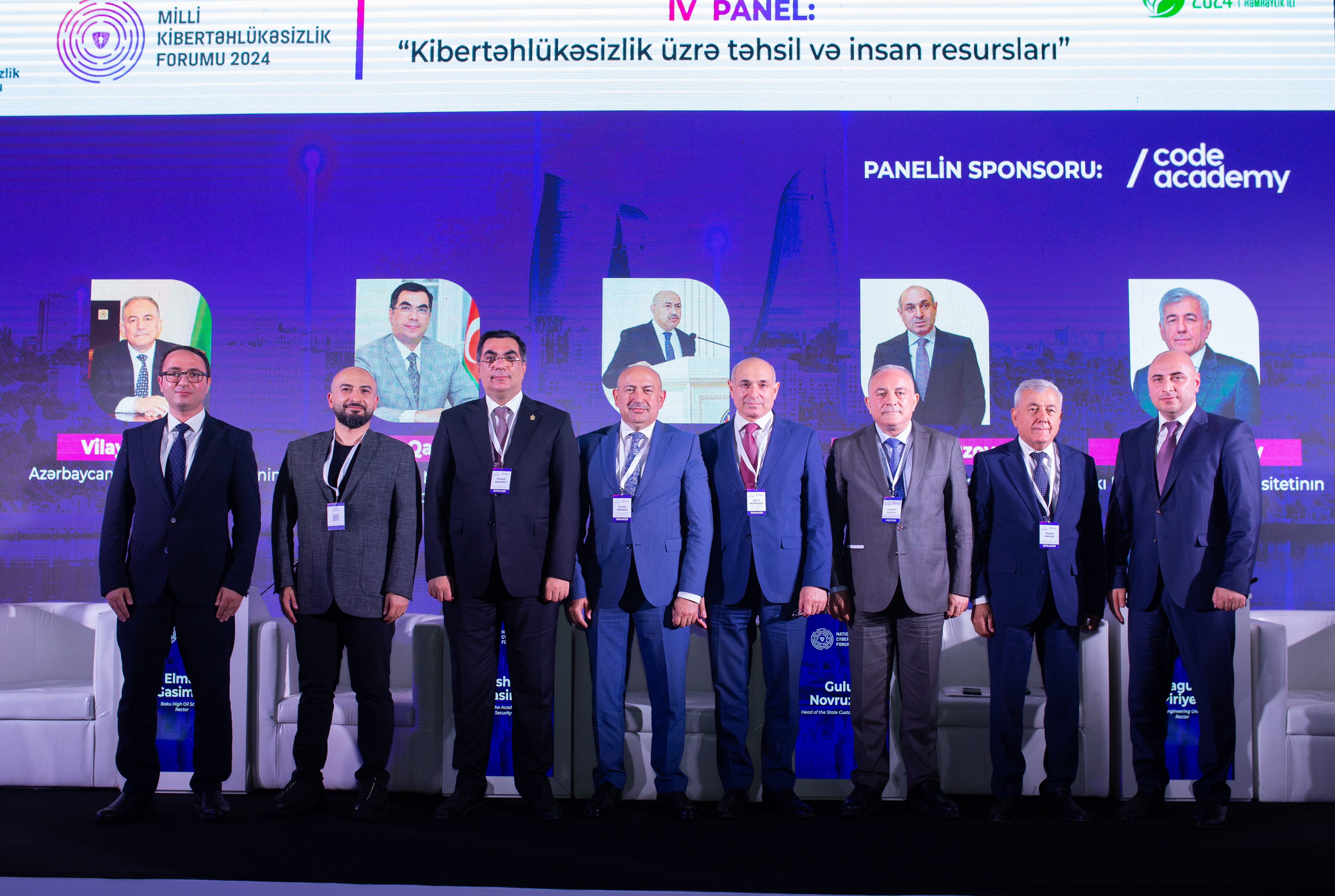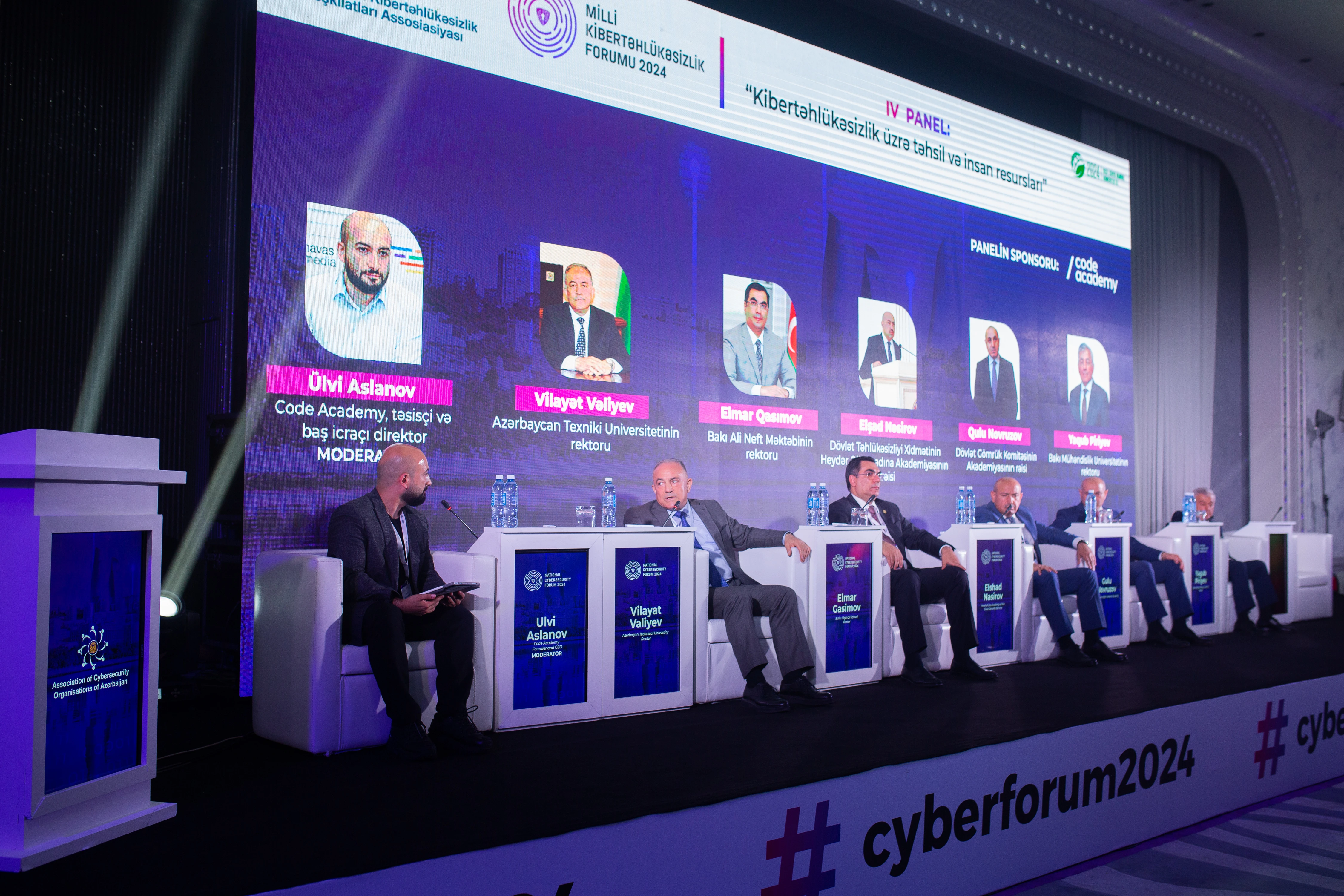
Issues regarding education and human resources in the field of cybersecurity were discussed with the participation of leaders from higher educational institutions.
07.06.2024

At the "III National Cybersecurity Forum," organised by the Association of Cybersecurity Organisations of Azerbaijan (ACOA), a panel discussion titled "Education and Human Resources in the field of Cybersecurity" took place with the participation of leaders from higher educational institutions responsible for training personnel in information security and cybersecurity.
The panel discussion, moderated by Ulvi Aslanov, Founder and CEO of Code Academy, included the participation of Vilayat Valiyev, Rector of Azerbaijan Technical University; Elmar Gasimov, Rector of Baku Higher Oil School; Elshad Nasirov, Head of the Academy of the State Security Service named after Heydar Aliyev; Gulu Novruzov, Chief of the Academy of the State Customs Committee; and Yagub Piriyev, Rector of Baku Engineering University.
Initially, information was brought forth by panel participants regarding efforts aimed at organising education and training in the fields of information security and cybersecurity. Insights were provided into accumulated experiences and achievements, as well as into the cooperation and pertinent issues with international and local institutions, companies, and organisations. Additionally, attention was drawn to initiatives aimed at strengthening workforce readiness through enhanced training programs.
In the panel discussions, which were met with special interest by the Forum participants and continued in a Q&A format, attention was drawn to the strengthening of university-industry cooperation, and the importance of interaction between labour market stakeholders and higher educational institutions was emphasised. It was noted that the further specification of bachelor's degrees in IT disciplines, would result in the preparation of more specialised professionals for the labour market.
Additionally, panel participants emphasised the importance of establishing technoparks, noting that technoparks created within higher educational institutions would significantly support the cybersecurity ecosystem in terms of human capital. Furthermore, they discussed a range of proposals and recommendations related to enhancing and aligning the education program for the "Information Security" specialisation with current industry demands. This included engaging relevant stakeholders in discussions, taking into account cutting-edge international experiences, and organising the teaching process within the evolving realities of the tech world.
In addition, panel participants emphasised the importance and significance of implementing certification programs in information security and cybersecurity. They also highlighted the necessity of enhancing external collaborations and partnerships, as well as supporting students in obtaining cutting-edge international certifications and learning international standards in the current field.
During the panel discussions, there was also emphasis on the inexhaustibility and preservation of the national talent pool in the field of information security and cybersecurity, as well as the need to prevent brain drain by studying the experiences of international companies. Additionally, the importance of intensifying integration with the local labour market was pointed out.
Furthermore, it was noted that alongside local teachers and experts, it is advisable to engage educators from internationally renowned higher educational institutions as mentors to prepare students for competitions and contests in the field of cybersecurity. Davud Rustamov, head of the Cybersecurity Operations Center of the State Security Service of the Republic of Azerbaijan, who asked panellists topic related questions, pointed out that the national CTF platform has been established to support the enhancement of students' knowledge and skills in the current field and that it is intended to be open and accessible for higher educational institutions.
